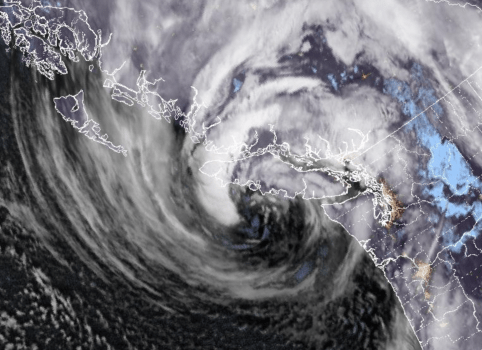FEMA’s denial of disaster relief leads to local confusion: Long Beach caught in the crossfire
Published 3:09 pm Monday, April 21, 2025
Last week’s revelation that the Federal Emergency Management Agency denied Washington’s application for disaster relief for Pacific and 10 other counties in response to last November’s bomb cyclone has potentially left a peninsula city on the hook for hundreds of thousands of dollars worth of repairs.
Gov. Bob Ferguson announced April 14 that FEMA had denied the state’s push to receive federal funds to assist with an estimated $34 million in damages as a result of the storms, which hammered Western Washington counties.
While the county experienced more widespread damage during the following month’s Dec. 17-18 windstorm, the bomb cyclone still brought about notable damage to city of Long Beach infrastructure. Without FEMA covering the vast bulk of the costs to repair or replace damage caused by the storm, the city would be left footing the bill entirely.
No explanation
FEMA’s letter denying the request did not give an explanation as to why, and said federal assistance is “not warranted.” Washington has 30 days to appeal the ruling, which Ferguson said the state will do.
While the appeal of FEMA’s denial of its application is underway, Ferguson said the agency’s decision will further delay communities receiving resources that are needed to fully recover from the storm.
“There are very clear criteria to qualify for these emergency relief funds. Washington’s application met all of them. This is another troubling example of the federal government withholding funding,” Ferguson said in a statement.
The decision from FEMA comes as President Donald Trump and his administration have mulled shuttering the agency entirely. Trump created a council to study what to do with FEMA, including disbanding it, and earlier this month FEMA ended a crucial program used by communities to pay for projects designed to help them prepare for natural disasters.
That program, Building Resilient Infrastructure and Communities, or BRIC, is the same program Long Beach had been seeking funding from to construct a vertical evacuation tower that would provide refuge for hundreds of people in the event of a tsunami. According to Long Beach Deputy City Administrator Ariel Smith, that effort is now on hold due to the program’s demise.
“We aren’t even able to apply [for funding] now,” said Smith.
Local reactions
Scott McDougall, the director of the Pacific County Emergency Management Agency, said FEMA’s denial of the state’s application was “very disappointing news,” but believes the decision will be reversed on appeal.
“To the best of my understanding, the state met all of its thresholds and requirements to qualify for this funding,” he said.
While the appeal process begins to play out, McDougall said the county is receiving “a very fluid and often confusing amount of information coming from FEMA.” Details are changing on a nearly daily basis, and he expects it will be “quite some time” before they have a clear picture of what’s happening.
Long Beach
One local entity that would be hit hard by FEMA’s decision if the state’s appeal is unsuccessful is Long Beach. Heavy surges from the bomb cyclone caused a storm drain line on 2nd Street NE between Pacific Avenue and Oregon Avenue to fail and ultimately allowed a sinkhole to form.
According to Smith, the city will be left to cover the estimated $250,000 required to fix the failing storm drain if FEMA’s decision stands. The federal agency would typically fund 75% of the cost while the Washington Emergency Management Division would cover 12.5%, leaving Long Beach to pay for the remaining 12.5% — about $31,000, in this case.
Having to cover the full cost of the project would be an “unexpected expense,” Smith said, which would come out of the city’s stormwater fund. The fund only collects about $350,000 in revenue annually, almost entirely from storm drainage fees from residences and businesses.
Lucky it hit north
Pacific County PUD would also be affected, to a lesser extent. Marc Wilson, the PUD’s general manager, confirmed that the utility district did submit a claim for the November bomb cyclone, but said the majority of the costs were labor and not material-related — such as crews needing to clear out trees or rehang wire.
“In comparison to other surrounding utilities, I’d say we were very lucky as the focus of that event was really north of us and we experienced relatively little damage,” said Wilson. “We were able to manage all restoration with our own crews. In comparison, some utilities were hit hard enough that they requested mutual aid from other utilities.”
The PUD had its own system under control so quickly that it was actually able to send a crew to help another utility that was being hit harder by the storm. And while it would be beneficial to be reimbursed for the extra work put in by the crews, Wilson said the impact to the PUD would be “minimal” if the state’s appeal is denied.





